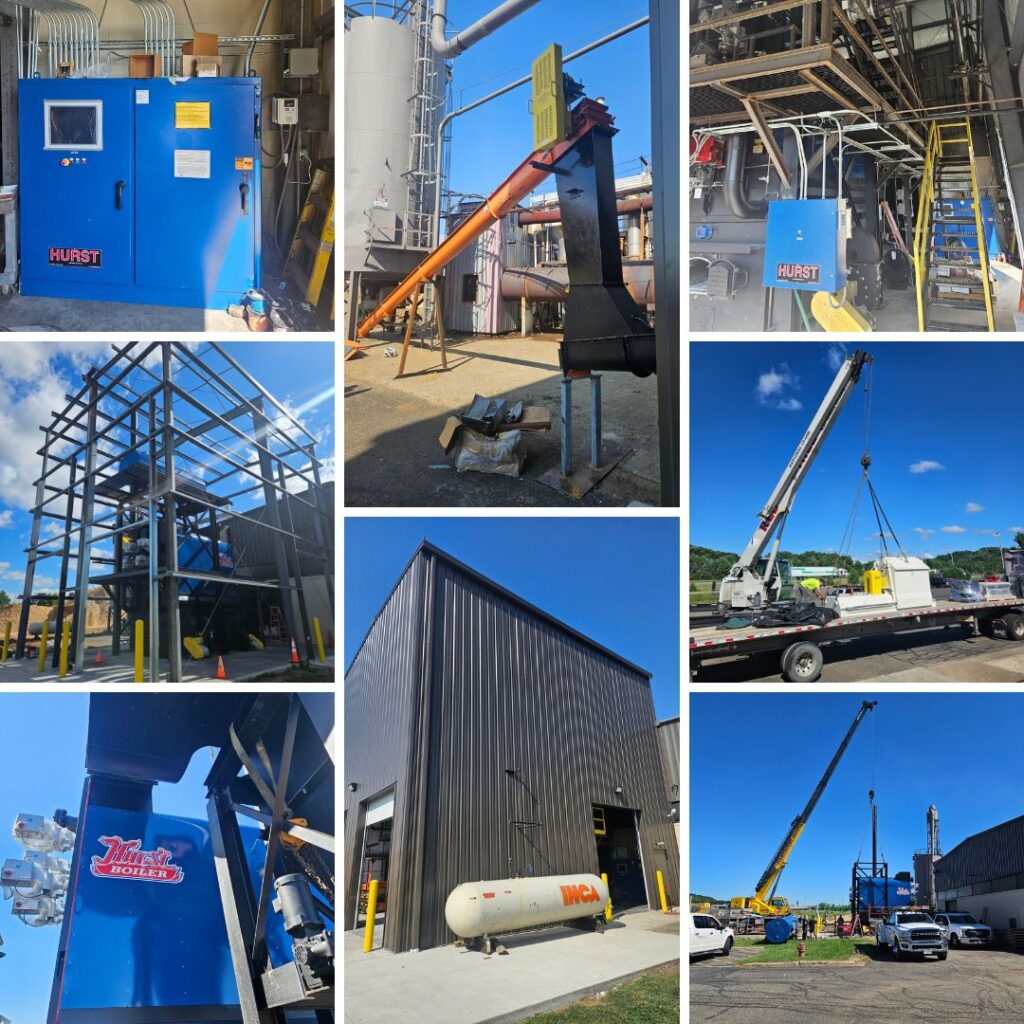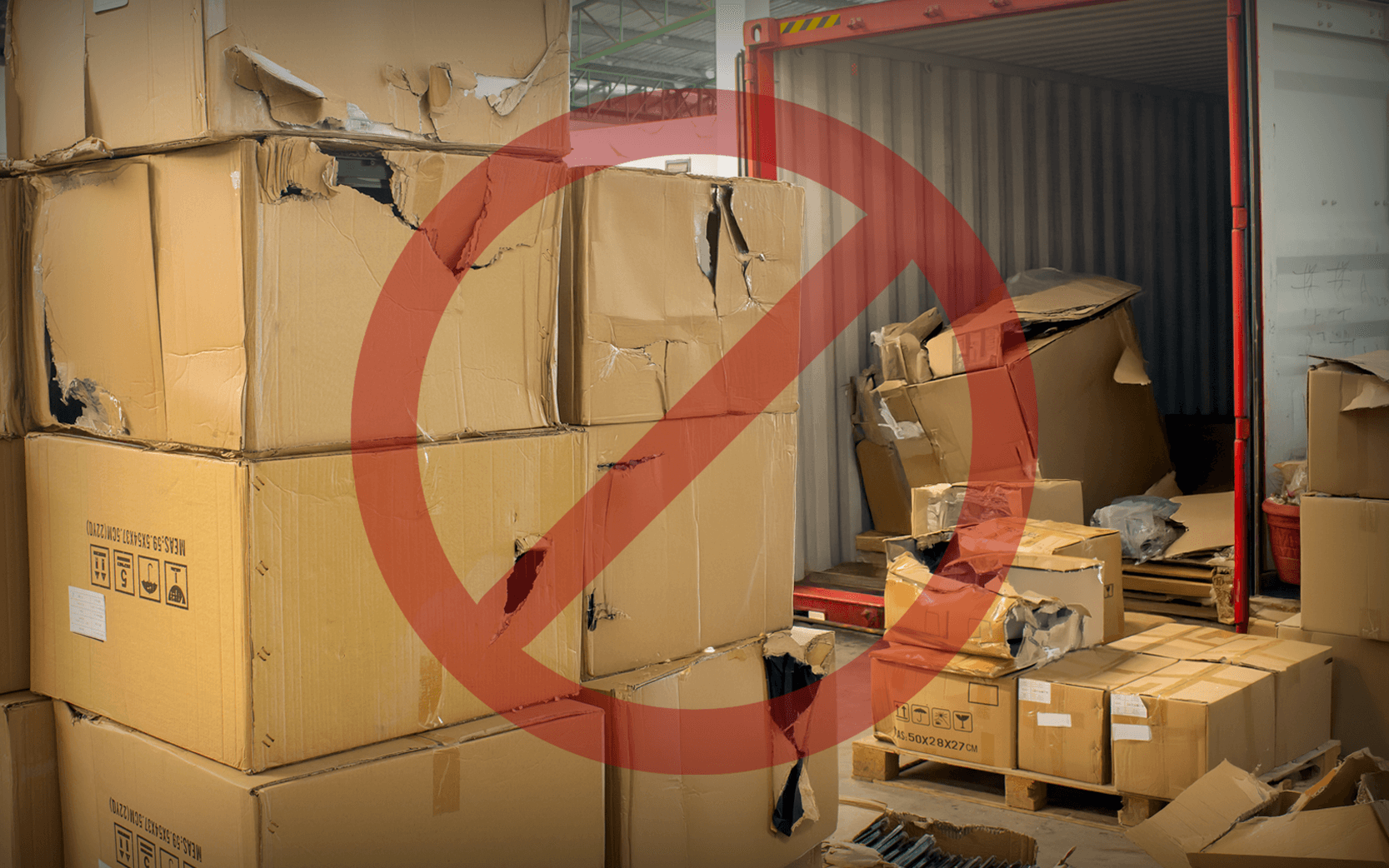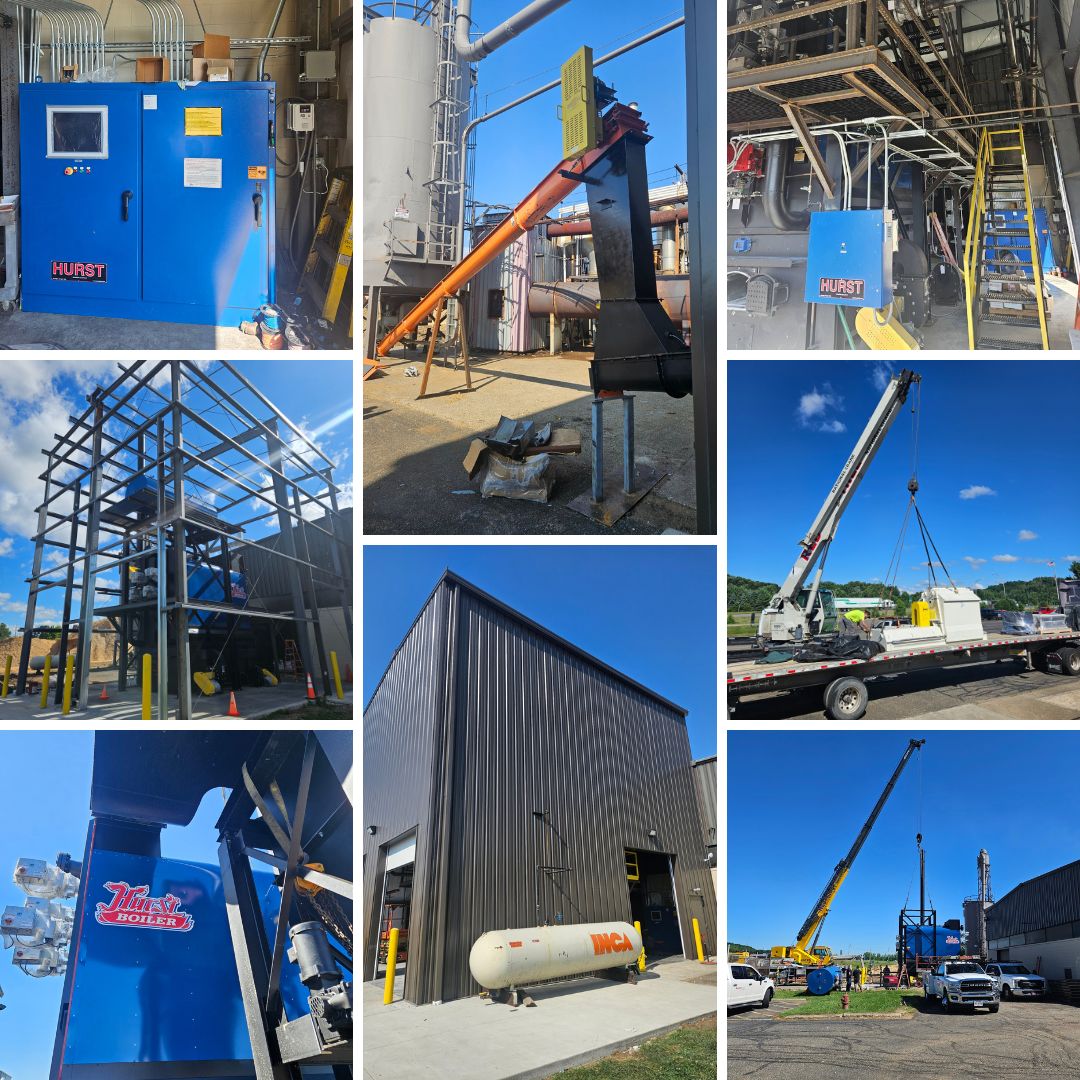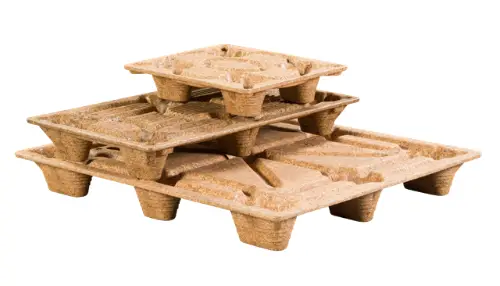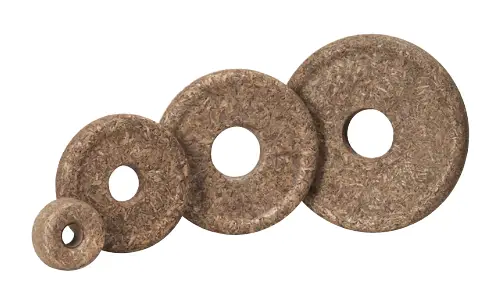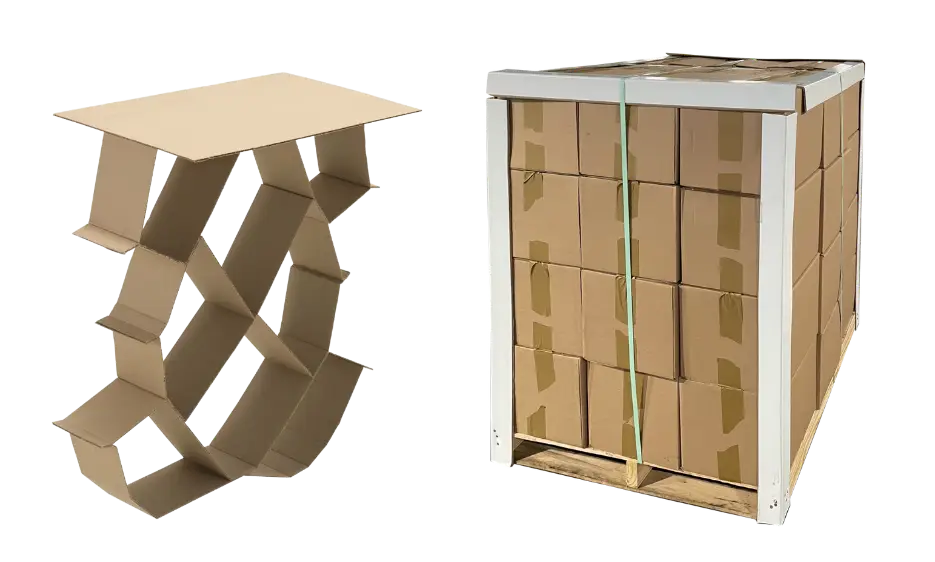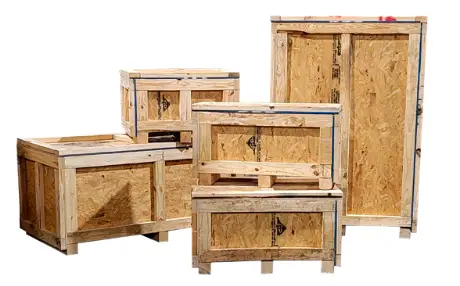Dover’s New Boiler and Hammermill
The Litco INCA Dover plant has recently undergone a significant upgrade with the installation of a new boiler and hammermill system.
Boiler operators Zack Stoneking and Trent Guthrie, both expressed their optimism about the impact these new pieces of equipment will have on the plant’s operations. Their insights shed light on the improvements and challenges associated with this modernization effort.
It’s apparent the plant operations will be enhanced with the new equipment and would influence daily routines.
Zack Stoneking highlighted a key benefit: a reduction in downtime. “The old boiler needed frequent repairs over the past few years. With the new one, we should experience much less downtime, which will help everything run more smoothly,” he explained.
Trent Guthrie echoed Zack’s thoughts, noting the overall improvement in efficiency.
“These upgrades are designed to streamline operations and make our jobs easier. It’s a win-win for the entire team,” Trent said.
The installation process was a complex and demanding project. Matt Doughty, who oversaw much of the work, provided some insight into the effort it required. “The sheer amount of work that needed to be done in a short period—it’s hard to capture the scope of what was completed,” Matt remarked.
Despite the challenges, the team managed to execute the installation with remarkable efficiency. The well-coordinated effort ensured that the project was completed on time, paving the way for the plant’s next phase of operations.
With the new boiler and hammermill now operational, the Dover plant is set to see a boost in overall efficiency, including improved performance at higher operating temperatures. This will positively affect production, particularly at the presses, where maintaining optimal temperatures is crucial.
The investment in this equipment represents a broader commitment from Litco to the future of the plant.
“It’s great to see the company invest in improving our operations,” Zack commented. “It shows that Litco is dedicated to long-term efficiency and making the plant better for everyone.”
While the installation process was demanding, the benefits—reduced downtime, greater efficiency and improved productivity—are expected to have a lasting positive impact on the plant’s operations.
“The original boiler, installed in 1979, had reached the end of its useful life,” explains Dale Hart, Vice President of INCA. “We identified the need for a replacement in 2016, but thanks to the efforts of the Dover team, we extended its life by eight years. However, in recent years, frequent repairs were required just to keep it operational.”
The old boiler suffered from metal fatigue due to constant cycling—heating and cooling—which led to operational inefficiencies. The new boiler, designed to operate at higher temperatures and pressures, will address these issues, significantly improving the plant’s production capacity.
The installation of the new boiler began in August 2024. The Dover plant continued to operate on the old boiler during this time, but a three-week shutdown was initiated in early September to connect the new system.
The new boiler will enable the plant to maintain higher production efficiency, resulting in shorter press times and increased output.
The new boiler’s design not only enhances production efficiency but also reduces costs, which will benefit customers by improving service and increasing capacity.
One unique feature of the new boiler is its use of High Temperature Hot Water instead of steam. The water inside the boiler is heated to over 430 degrees Fahrenheit but remains in liquid form due to the high pressure of nearly 400 psi. This makes it a safer and more efficient system for heating the molds used in the plant’s pallet and core plug production.
The new boiler was custom-designed in partnership with Hurst Boiler of Georgia, a company with over 60 years of experience in water tube boilers using wood and wood dust as a heating source. This collaboration resulted in a system tailored to the Dover plant’s specific needs.
In addition to the boiler upgrade, the Dover plant also invested in a new hammermill, which plays a crucial role in processing pre-dried wood chips into flakes necessary for production.
“The original knife flaker was not only costly to operate, but it also required a rebuild every six months and frequent maintenance,” explains Hart.
After collaborating with the Millwood Operations Team, the decision was made to replace the outdated machine with a more efficient hammermill.
The new hammermill is designed to process a higher throughput of wood, which will lower both energy and maintenance costs. “It’s a huge step forward in improving operational efficiency,” Hart says.
Not only is the hammermill more efficient, but it also requires less maintenance, freeing up team members to focus on other critical tasks. This ultimately leads to better production outcomes and lower operational costs, benefiting both employees and customers alike.
